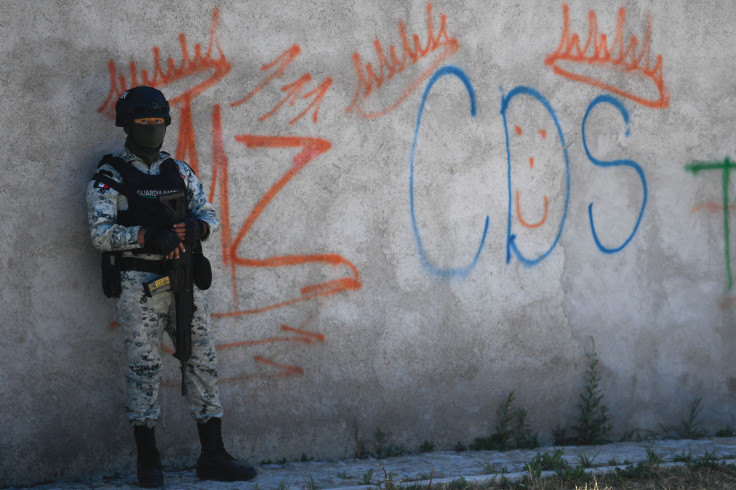
An alleged member of the Sinaloa Cartel said the Trump administration's crackdown at the border has made operations more difficult.
The claim took place during an interview with CNN, which managed to interview the operative about the group's current state of affairs.
"Do you think what President Trump has been doing has been making your job tougher?" journalist David Coulver asked the man, who was entirely dressed in black, including a mask, sunglasses, black gloves and a hat to conceal his identity. "Oh yeah," the gang member answered.
The report noted that cartels are now charging more to get migrants across the border due to its increased difficulty. Another report by Fox News detailed that they are now charged $10,000 instead of $6,500 before the beginning of the current administration.
The CNN interview then delved into the operative's personal life. He said he has killed people and coordinated smuggling operations, but he stills considers he is a good person. "I did what I had to do," he said.
He added that he did the interview in hopes of deterring other people from joining a cartel. "It's not a life. It's not good," he said. "One you get in, you can't get out."
However, cartels continue recruiting people, with new reports detailing how they are using social media to lure U.S. citizens.
CNN spoke in another report with a woman from Arizona who said she was offered between $5,000 and $10,000 in a single day through a Snapchat message. A 20-year-old single mother, she said the money would help her alleviate financial pressures and accepted to become involved in a human smuggling operation.
The woman didn't have a car or a driver's license, but got a friend with a vehicle to make the trip to southern Arizona to get the migrants and return north. She received the cash payment that night. Overall, she helped coordinate the smuggling of almost 100 migrants by posting the same social media message herself and finding other people willing to become involved.
She said that cartels warned her when drivers got arrested and instructed her to delete material from her phone. She never knew the identities of the people she worked for, but experts told the outlet they believe she was working for the Sinaloa Cartel. She was arrested months later and sentenced to prison.
© 2025 Latin Times. All rights reserved. Do not reproduce without permission.





